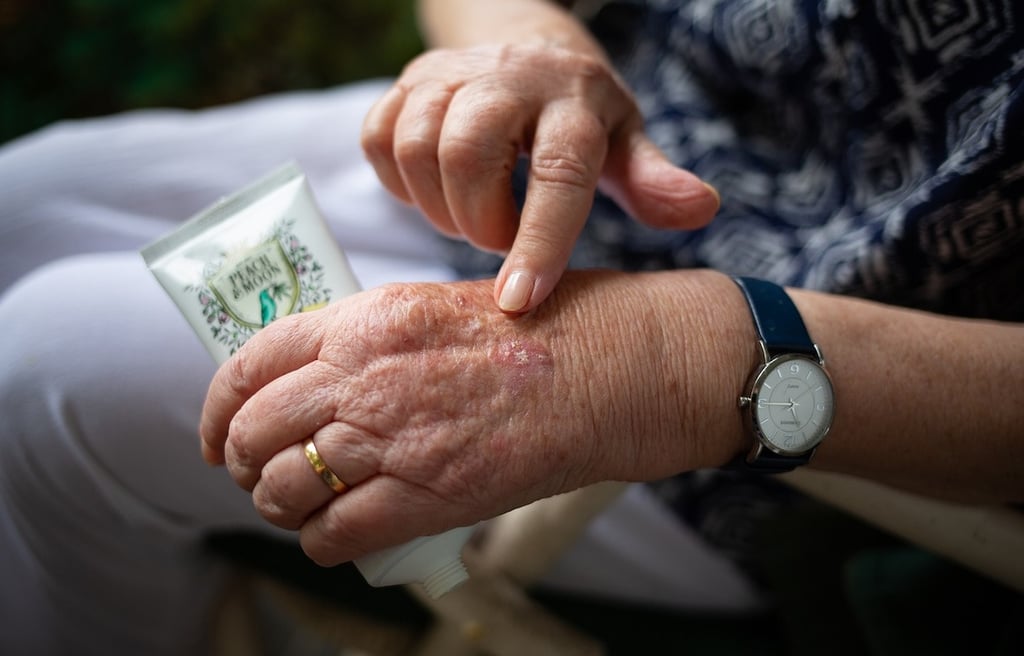RHEUMATOID ARTHRITIS (PART II)
There is no cure for Rheumatoid Arthritis, but with proper management, many people with the condition can lead active, fulfilling lives.
There is no cure for Rheumatoid Arthritis, but with proper management, many people with the condition can lead active, fulfilling lives.
Rheumatoid Arthritis (Part II)


In our last post, we mentioned what is Rheumatoid Arthritis, what its symptoms are and how to diagnose it. This article will look at the treatment options and how to manage Rheumatoid Arthritis on a day-to-day basis.
The treatment of Rheumatoid Arthritis usually focuses on controlling symptoms, preventing joint damage and improving overall quality of life. The main treatment options include:
1. Medications
Several types of medications are used to treat Rheumatoid Arthritis, and the choice of medication depends on the severity of the disease and the individual’s overall health. We will mention some of those that are often used:
- Non-steroidal Anti-inflammatory Drugs (NSAIDs): These medications, such as ibuprofen and naproxen, can help reduce pain and inflammation. However, they do not prevent joint damage.
- Corticosteroids: Medications like prednisone are used to control inflammation and reduce symptoms in the short term. However, long-term use can lead to side effects like weight gain, bone thinning, and increased risk of infection.
- Disease-Modifying Antirheumatic Drugs (DMARDs): These drugs, such as methotrexate and hydroxychloroquine, slow the progression of RA and prevent joint damage. DMARDs are often the first line of treatment for people with moderate to severe Rheumatoid Arthritis.
- Biologic Response Modifiers (Biologics): Biologics are a newer class of drugs that target specific components of the immune system responsible for inflammation. Examples include tumour necrosis factor (TNF) inhibitors, such as etanercept and infliximab, and interleukin-6 inhibitors like tocilizumab.
2. Physical Therapy
Physical therapy can help improve joint flexibility, strengthen muscles and reduce pain. A physical therapist may recommend exercises, stretches and assistive devices to help manage daily tasks more easily. Regular exercise, such as swimming or walking, is also important for maintaining joint health and overall well-being.
3. Lifestyle Changes
Making certain lifestyle changes can have a significant impact on managing Rheumatoid Arthritis symptoms and preventing flare-ups:
- Quit Smoking: Smoking is a known risk factor for Rheumatoid Arthritis and can worsen symptoms. Quitting smoking can slow disease progression and improve overall health.
- Healthy Diet: A diet rich in anti-inflammatory foods, such as fruits, vegetables, whole grains and fatty fish, can help reduce inflammation. Some people with Rheumatoid Arthritis find that certain foods, such as processed foods or red meat, may trigger flare-ups.
- Stress Management: Stress can exacerbate Rheumatoid Arthritis symptoms. Techniques such as meditation, yoga, and deep breathing exercises can help reduce stress and improve mental health.
4. Surgery
In cases where joint damage is severe, surgery may be necessary. Joint replacement surgery, such as hip or knee replacement, can improve function and relieve pain. Other surgical options include joint fusion or tendon repair.
Living with Rheumatoid Arthritis
Living with RA can be challenging, but with the right treatment plan and support, many people with the condition are able to manage their symptoms and maintain a good quality of life. Regular check-ups with a healthcare provider, adherence to medication and lifestyle modifications are essential for managing the disease.
Support groups and counselling can also provide emotional support, helping individuals cope with the psychological and social aspects of living with a chronic illness. Education about the disease and its treatment is crucial, empowering patients to take an active role in managing their health.
Rheumatoid arthritis is a complex, lifelong condition that requires a multifaceted approach to treatment. Early diagnosis, appropriate medical care and a healthy lifestyle can help control symptoms, prevent joint damage and improve overall well-being. While RA may present challenges, many people are able to lead fulfilling lives with proper management.
SUBSCRIBE
Subscribe for updates on latest posts and to follow what is happening in the home of Target Pain.


